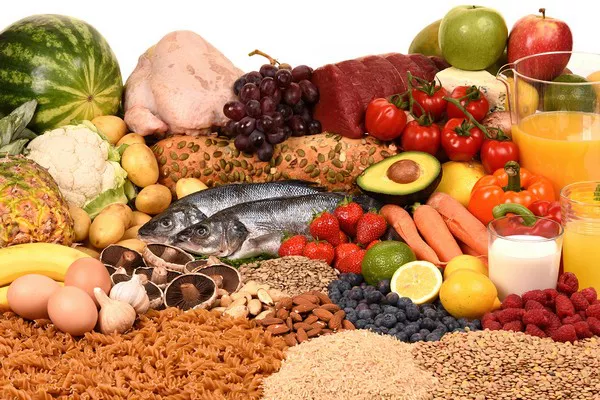Fat-soluble vitamins are a group of organic compounds that play vital roles in maintaining our health and well-being. These nutrients are unique in their solubility characteristics, as they dissolve in fat, rather than water. In this comprehensive article, we will explore the world of fat-soluble vitamins, their importance, sources, functions, and potential health implications. Whether you’re a health-conscious individual or a healthcare professional, understanding fat-soluble vitamins is crucial for optimal nutrition and overall health.
What Are Fat-Soluble Vitamins?
Fat-soluble vitamins are a class of organic compounds that are essential for various physiological functions within the human body. Unlike water-soluble vitamins, which dissolve in water and are easily excreted by the body, fat-soluble vitamins dissolve in dietary fats and are stored in our body’s fat tissues. This unique solubility property allows fat-soluble vitamins to be stored for more extended periods, making them available when needed.
The Fat-Soluble Vitamin Group
The fat-soluble vitamin group consists of four essential vitamins: Vitamin A, Vitamin D, Vitamin E, and Vitamin K. Each of these vitamins serves distinct roles in maintaining health, and a deficiency in any of them can lead to various health issues.
1. Vitamin A
Vitamin A, also known as retinol, is crucial for maintaining healthy vision, a robust immune system, and the proper functioning of our heart, lungs, and kidneys. It plays a fundamental role in maintaining the integrity of our skin and mucous membranes, serving as a barrier against infections. Vitamin A is primarily found in animal products like liver, eggs, and dairy, as well as in colorful fruits and vegetables in the form of provitamin A carotenoids.
2. Vitamin D
Vitamin D, often referred to as the “sunshine vitamin,” is unique because our skin can synthesize it when exposed to sunlight. This vitamin is essential for calcium absorption in the intestines, ensuring healthy bone development and maintenance. It also plays a vital role in modulating the immune system and has been linked to reducing the risk of chronic diseases. Dietary sources of Vitamin D include fatty fish, fortified foods, and supplements.
3. Vitamin E
Vitamin E is a potent antioxidant that protects our cells from damage caused by free radicals, which can contribute to aging and various diseases. It also supports a healthy immune system and is necessary for skin health. Nuts, seeds, vegetable oils, and leafy greens are excellent sources of Vitamin E.
4. Vitamin K
Vitamin K is essential for blood clotting and bone health. It helps the body produce proteins necessary for coagulation, preventing excessive bleeding. This vitamin is naturally found in green leafy vegetables, such as kale, spinach, and broccoli, as well as in some animal products.
Absorption and Metabolism of Fat-Soluble Vitamins
Understanding how the body absorbs and metabolizes fat-soluble vitamins is crucial to appreciate their significance in maintaining health.
1. Absorption
Fat-soluble vitamins are absorbed differently from water-soluble vitamins. They require dietary fats to be adequately absorbed into the bloodstream. After digestion, these vitamins are incorporated into micelles, small fat droplets that can be transported across the intestinal lining. Once absorbed, fat-soluble vitamins enter the lymphatic system before reaching the bloodstream.
2. Storage
One of the key characteristics of fat-soluble vitamins is their ability to be stored in the body’s fat tissues. This storage system allows the body to maintain a reserve of fat-soluble vitamins for times when dietary intake is insufficient. However, excessive storage can lead to toxicity, especially for Vitamins A and D.
3. Transport
Fat-soluble vitamins are transported through the bloodstream via carrier proteins. These proteins ensure that the vitamins reach their target tissues and organs. For example, Vitamin A is transported by retinol-binding protein, while Vitamin D uses vitamin D-binding protein for transport.
4. Metabolism and Excretion
Unlike water-soluble vitamins, which are readily excreted in urine, fat-soluble vitamins are metabolized more slowly. They are broken down in the liver and excreted through bile. This slower metabolism means that excess fat-soluble vitamins can accumulate in the body, potentially leading to toxicity.
Importance of Fat-Soluble Vitamins for Health
Fat-soluble vitamins are indispensable for various physiological processes, and their deficiency can have severe health consequences. Let’s delve deeper into the specific roles these vitamins play in maintaining our well-being.
Vitamin A: Vision and Immunity
Vitamin A is renowned for its critical role in vision. It is an integral component of the light-sensitive pigment in our retinas, called rhodopsin, which enables us to see in low-light conditions. A deficiency in Vitamin A can lead to night blindness and, in severe cases, complete blindness.
Additionally, Vitamin A plays a pivotal role in maintaining a robust immune system. It helps regulate the growth and differentiation of immune cells, ensuring that our body can effectively fight off infections and diseases. Insufficient Vitamin A intake can weaken the immune response, leaving individuals more susceptible to illnesses.
Vitamin D: Bone Health and Immune Modulation
One of the primary functions of Vitamin D is to maintain proper calcium balance in the body. It enhances the absorption of calcium from the intestines and ensures that an adequate amount of calcium is available for bone mineralization. Without sufficient Vitamin D, the body cannot absorb enough calcium, leading to weakened bones and conditions like rickets in children and osteoporosis in adults.
Vitamin D also plays a role in modulating the immune system. It can help reduce the risk of autoimmune diseases and regulate inflammatory responses. Insufficient Vitamin D levels have been associated with an increased susceptibility to infections and chronic inflammatory conditions.
Vitamin E: Antioxidant Defense
Vitamin E acts as a powerful antioxidant, protecting our cells and tissues from oxidative damage caused by free radicals. Oxidative stress can contribute to aging and various chronic diseases, such as heart disease and cancer. Vitamin E helps neutralize free radicals, reducing their harmful effects.
Additionally, Vitamin E is essential for maintaining healthy skin and eyes. It supports the immune system and may have a role in reducing the risk of certain chronic diseases.
Vitamin K: Blood Clotting and Bone Health
Vitamin K is critical for blood clotting, a process that prevents excessive bleeding when we get injured. It facilitates the production of clotting factors in the liver, ensuring that our blood can clot effectively. Individuals with Vitamin K deficiency may experience easy bruising and bleeding.
In addition to its role in blood clotting, Vitamin K also contributes to bone health. It helps activate proteins that regulate calcium deposition in bones and prevent calcium from accumulating in blood vessels and soft tissues.
Sources of Fat-Soluble Vitamins
Obtaining an adequate amount of fat-soluble vitamins through diet is essential for overall health. Let’s explore the dietary sources of each fat-soluble vitamin.
Vitamin A Sources
Animal Sources: Liver, fish liver oils (e.g., cod liver oil), eggs, and dairy products (e.g., milk, cheese).
Plant Sources: Colorful fruits and vegetables, such as carrots, sweet potatoes, and spinach, contain provitamin A carotenoids like beta-carotene, which the body can convert into Vitamin A.
Vitamin D Sources
Sunlight: The body can synthesize Vitamin D when exposed to sunlight, specifically UVB rays. Spending time outdoors, especially during sunny days, allows for natural Vitamin D production.
Dietary Sources: Fatty fish (e.g., salmon, mackerel, trout), fortified foods (e.g., fortified milk, cereal, and orange juice), and Vitamin D supplements.
Vitamin E Sources
Nuts and Seeds: Almonds, sunflower seeds, and hazelnuts are rich sources of Vitamin E.
Vegetable Oils: Vegetable oils such as sunflower, safflower, and wheat germ oil are high in Vitamin E.
Green Leafy Vegetables: Spinach and broccoli also contain Vitamin E.
Vitamin K Sources
Leafy Greens: Kale, spinach, collard greens, and broccoli are excellent sources of Vitamin K.
Animal Products: Liver and certain fermented foods, like natto (a Japanese dish), also contain Vitamin K.
Recommended Dietary Intake of Fat-Soluble Vitamins
To maintain optimal health, it is essential to consume adequate amounts of fat-soluble vitamins. Recommended dietary intake varies by age, sex, and life stage. Below are general guidelines for the recommended daily intake of these vitamins:
Vitamin A:
Adult males: 900 micrograms (mcg) per day
Adult females: 700 mcg per day
Vitamin D:
Adults under 70: 600-800 International Units (IU) per day
Adults over 70: 800-1,000 IU per day
Vitamin E:
Adult males and females: 15 milligrams (mg) per day
Vitamin K:
Adult males: 120 mcg per day
Adult females: 90 mcg per day
It’s important to note that these recommendations may vary based on individual factors, such as pregnancy, lactation, and certain medical conditions. Consulting with a healthcare professional or registered dietitian can help determine the appropriate intake for specific needs.
Health Implications of Fat-Soluble Vitamin Deficiency
A deficiency in fat-soluble vitamins can lead to various health problems, each associated with specific symptoms and risks. Understanding these implications can highlight the importance of maintaining adequate intake.
Vitamin A Deficiency
Night Blindness: Difficulty seeing in low-light conditions.
Xerophthalmia: A severe eye condition that can lead to blindness.
Increased Infection Risk: Weakened immune system, making the body susceptible to infections.
Vitamin D Deficiency
Rickets: Softening and weakening of bones in children, leading to deformities.
Osteoporosis: Reduced bone density and increased risk of fractures in adults.
Muscle Weakness: Impaired muscle function and weakness.
Vitamin E Deficiency
Neurological Issues: Nerve damage leading to muscle weakness and coordination problems.
Vision Problems: Retinal degeneration, leading to vision impairment.
Immune Dysfunction: Weakened immune response.
Vitamin K Deficiency
Bleeding Disorders: Impaired blood clotting, leading to excessive bleeding.
Osteoporosis: Reduced bone density and increased fracture risk.
Arterial Calcification: Calcium buildup in blood vessels, increasing the risk of cardiovascular issues.
Health Risks of Excessive Fat-Soluble Vitamin Intake
While fat-soluble vitamins are crucial for health, excessive intake can lead to toxicity, which can have adverse effects on the body. Here are the potential risks associated with overconsumption of fat-soluble vitamins:
Vitamin A Toxicity (Hypervitaminosis A)
Vision Problems: Blurred vision, double vision, and even blindness.
Bone Pain: Pain and tenderness in the bones.
Nausea and Vomiting: Gastrointestinal discomfort.
Skin Issues: Dry, itchy skin, and in severe cases, peeling skin.
Liver Damage: Excessive Vitamin A can harm the liver.
Vitamin D Toxicity (Hypervitaminosis D)
Hypercalcemia: Elevated levels of calcium in the blood, leading to kidney stones and tissue damage.
Nausea and Vomiting: Gastrointestinal symptoms.
Muscle Weakness: Loss of muscle strength and function.
Confusion: Cognitive changes and disorientation.
Vitamin E Toxicity
Gastrointestinal Distress: Nausea, diarrhea, and stomach cramps.
Increased Bleeding Risk: Vitamin E can act as a blood thinner, leading to excessive bleeding.
Interference with Blood Clotting Medications: Can interact with anticoagulant medications.
Vitamin K Toxicity
Hemolytic Anemia: Breakdown of red blood cells.
Liver Damage: Excessive Vitamin K intake can harm the liver.
Interference with Anticoagulants: Can interfere with medications like warfarin.
It is crucial to note that toxicity from dietary sources is rare and typically occurs when individuals take high-dose supplements without medical supervision. For most people, maintaining a balanced diet that includes a variety of foods is sufficient to meet their fat-soluble vitamin needs without the risk of toxicity.
Fat-Soluble Vitamins and Special Populations
Certain populations may have specific considerations regarding fat-soluble vitamin intake due to their unique needs or circumstances. Here are some examples:
Pregnancy and Lactation
Pregnant and lactating women require increased amounts of fat-soluble vitamins to support their own health and that of their developing fetus or breastfeeding infant. Adequate intake of Vitamin A, Vitamin D, and Vitamin K is especially important during these periods to ensure proper development and health.
Infants and Children
Growing children have higher requirements for fat-soluble vitamins, as they are crucial for bone development, growth, and overall health. Adequate intake of Vitamin D is essential for preventing rickets, while Vitamin A is necessary for healthy vision and immune function.
Elderly Individuals
As people age, their ability to absorb certain nutrients may decrease. This is particularly true for Vitamin B12 and Vitamin D. Therefore, older adults should pay special attention to their fat-soluble vitamin intake and consider supplements if recommended by their healthcare provider.
Conclusion
In conclusion, fat-soluble vitamins, including Vitamin A, Vitamin D, Vitamin E, and Vitamin K, are essential for maintaining various aspects of our health, from vision and immune function to bone health and antioxidant defense. These vitamins are unique in their solubility in dietary fats and their storage within the body, allowing us to access them when needed.
Balancing fat-soluble vitamin intake is critical, as both deficiency and excess can lead to health issues. Obtaining these vitamins through a well-rounded diet that includes a variety of food sources is generally the safest approach. However, in certain circumstances, such as pregnancy, lactation, or specific medical conditions, supplementation may be necessary and should be guided by healthcare professionals.
By understanding the roles, sources, and potential health implications of fat-soluble vitamins, individuals can make informed choices about their nutrition and work towards achieving optimal health and well-being. Remember that a healthy lifestyle and a balanced diet are key to ensuring you receive the right amount of fat-soluble vitamins to support your body’s needs.
[inline_related_posts title=”You Might Be Interested In” title_align=”left” style=”list” number=”6″ align=”none” ids=”2477,2420,2408″ by=”categories” orderby=”rand” order=”DESC” hide_thumb=”no” thumb_right=”no” views=”no” date=”yes” grid_columns=”2″ post_type=”” tax=””]



































